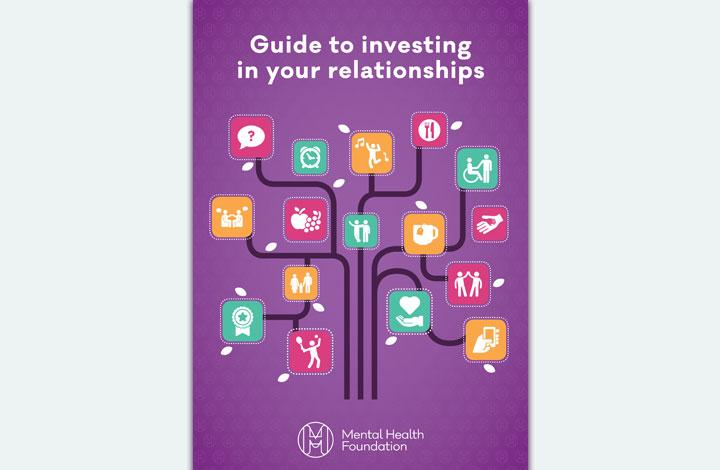Relationships and stress
Relationships and stress
Relationships are a great support in times when we feel stressed. However, from time to time the people close to you, be it a partner, parent, child, friend or colleague, can increase your stress levels.17
Relationships, the missing piece of the wellbeing puzzle
We explored relationships for Mental Health Awareness Week 2016 and how good relationships are vital for our mental health. Watch our animation now:
Events such as ongoing minor arguments and disagreements, to larger family crises, such as an affair, illness or bereavement are likely to affect the way you think, feel and behave. This may consequently have an impact on your stress levels.
Guide to investing in your relationships
RELATED CONTENT
Good relationships protect our mental health and wellbeing at any stage of life. People who are more socially connected are happier, physically healthier and live longer.
Loneliness can be toxic to our wellbeing – our health declines earlier and we can have shorter lifespans. It’s important to remember that it is good, supportive relationships that protect our bodies and our minds.
This guide will outline what each of us can do to create better relationships with ourselves, with the people we are close to, and with those around us.
Five universal tips for maintaining healthy relationships
- Give time; Put more time aside to connect with friends and family.
- Be present; It can be tempting to check your phone, Facebook messages or even work emails when with family and friends. Try to be present in the moment and be there for your loved ones, and switch out of work mode wherever possible.
- Listen; Actively listen to what others are saying in a non-judgemental way and concentrate on their needs in that moment
- Be listened to; Share how you are feeling, honestly, and allow yourself to be listened and supported.
- Recognise unhealthy relationships; Being around positive people can make us happier. Our wellbeing can be negatively affected by harmful relationships, however, leaving us unhappy. Recognising this can help us move forward and find solutions to issues.
The relationship you have with yourself
“The relationship with yourself sets the tone for every other relationship you have.” Robert Holden
Try this exercise: imagine being in a relationship with someone you didn’t love, found to be deeply flawed, worthless, and not good enough. Now imagine you have to be in this relationship for the rest of your life. How would that relationship feel? How would that relationship affect your thoughts, behaviour and day-to-day life?
It’s important to evaluate the relationship you have with yourself. Ask yourself: would you speak to someone else the way you speak about yourself?
“Caring for myself is not self-indulgence, it is self-preservation.” Audre Lorde
Self-care is about looking after yourself and your mental health. The relationship you have with yourself is crucial to your own wellbeing and also to creating healthy and happy relationships with others. Being kind to yourself regularly is one of the best things you can do for yourself.
Self-care can look like different things for different people. For some, self-care might be taking time to rest each week; for others, it may be sweating it out at the gym or going for a run outside. Self-care could be going for a walk in one’s neighbourhood, spending time in nature, or seeing or speaking to friends regularly. Here are a few habits you can start today that can bring about a positive change to improving the relationship you have with yourself:
- Invest in yourself. Spend 15–30 minutes each day doing something that uplifts you.
- When your inner critic or an outer critic finds faults, try and find truth and exception to what is being said.
- If you stumble or feel you have failed, don’t beat yourself up. Act as if you were your own best friend: be kind and supportive.
- Do something to wind down at the end of each day.
- Take a few minutes each day to appreciate yourself.
